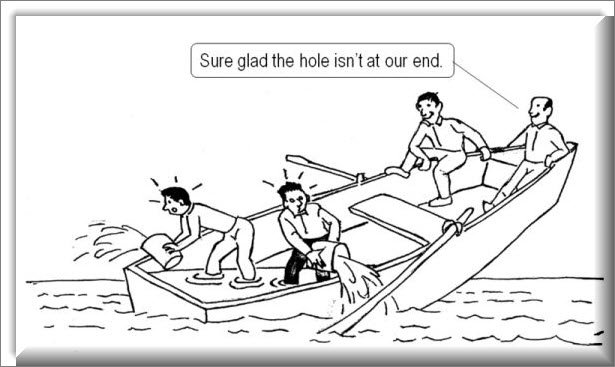The Subscription System: A System Rigged Against the Working Class


Not my problem they told me when my car broke down. I ask this group of kids if they could give me a lift into town they also they knew me. I walked 2 miles got the parts I needed fixed my car on my way home the same kids ran out of gas and were waving me down I rolled down my window and said like you said not my problem see ya!
“Life has a way of teaching profound lessons. It’s not your problem until it is. The laughter fades when the shoe is on the other foot, and the pain is no longer distant. Next time someone dismisses the importance of empathy and support, remind them: it may not be their problem now, but understanding another’s struggle could be the key to compassion when life turns the tables.”
The Subscription System: An Unfair Drain on the Working Class In today’s society, the subscription-based model has become increasingly prevalent, touching various aspects of our lives. However, this system has inadvertently created increasing financial burdens on the working class. As the hardworking American people witness their elected officials giving away trillions of dollars to foreign lands without tangible benefits, concerns about the system’s fairness and its impact on their lives grow. In this article, we will explore how this subscription system perpetuates inequity and discuss potential solutions to alleviate the burden on the working class.
The Subscription System’s Unfair Nature: The subscription system, while convenient and enticing, often leaves the working class feeling exploited. Many popular services offer low introductory prices, only to drastically increase the cost over time. This gradual increase in expenditure disproportionately affects those on fixed incomes or in lower-paying jobs, as they struggle to meet the rising financial demands of these subscriptions.
Moreover, the subscription culture pushes individuals towards accumulating more debt. As more subscriptions pile up, managing finances becomes increasingly challenging, forcing people to rely on credit cards and loans to sustain these services. Consequently, this contributes to rising credit card debt, which stifles economic progress and creates a cycle of financial instability.
The Working Class’s Disbelief: The American people have lost faith in their elected officials or the governing bodies, who seem to prioritize foreign interests over their own. Witnessing trillions of dollars being allocated to foreign aid without any significant return on investment leaves the working class disillusioned. Such acts fuel the perception that the system is rigged to benefit the few at the expense of the many.
The Desire for Tangible Benefits: The average American citizen has concerns that extend beyond foreign aid. They aspire for their tax dollars to benefit their communities directly. Issues such as access to affordable healthcare, dental care, and childcare are pressing concerns that impact their day-to-day lives. Unfortunately, the current system fails to address these needs adequately, creating a significant gap between the working class and those in power.
Solutions for a Fairer System: To address the concerns of the working class and achieve a fairer society, changes to the existing system are necessary. Here are a few potential solutions:
- Affordable Healthcare: The government should explore ways to provide more affordable healthcare options for all citizens, ensuring that medical expenses do not lead to financial ruin. This can be achieved through policies that enable the negotiation of drug prices and increased investment in public healthcare infrastructure.
- Debt Relief Programs: Implementing programs to relieve the burden of credit card debt can help individuals get back on their feet financially. Offering low or no-interest debt consolidation loans or providing tax incentives for debt repayment may prove effective in easing this significant financial strain.
- Accessible Childcare: Establishing affordable and accessible childcare facilities would alleviate the burden on working families. This would enable parents to pursue their careers while ensuring their children receive quality care and early education.
- As the subscription system continues to drain the working class’s financial resources, the American people are left skeptical and frustrated. The unequal distribution of wealth, coupled with the disregard for their pressing needs, only widens the gap between the average citizen and their elected officials. To create a fairer society, prioritizing tangible benefits, such as affordable healthcare, debt relief, and accessible childcare, is imperative. By addressing these concerns, we can pave the way for a system that truly serves the best interests of the American people.
Throughout his career, Roy Swire has remained true to his roots, using his artistry to inspire and uplift others. Whether through his music, writing, or activism, he continues to make a meaningful impact on the world, proving that art has the power to transcend boundaries and unite people from all walks of life.
Related News
Supreme Court Overturns Lower Court’s Block on Venezuelan Deportations – The New York Times
Spread the love Supreme Court Overturns Lower Court’s Block on Venezuelan Deportations The New York TimesRead More
Top Democrats stress contrasts between Trump, Harris at Pa. rally – The Washington Post
Spread the love Top Democrats stress contrasts between Trump, Harris at Pa. rally The Washington PostRead More
